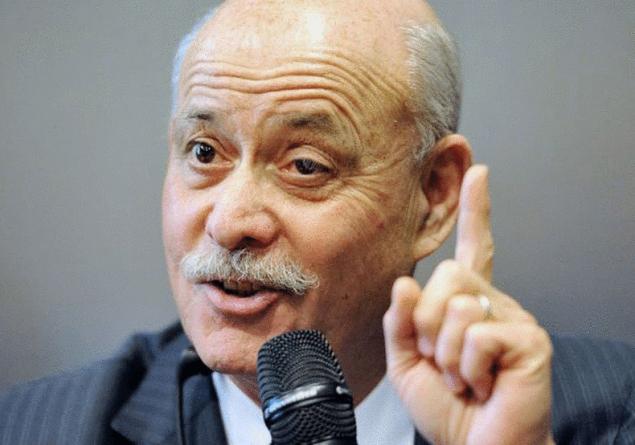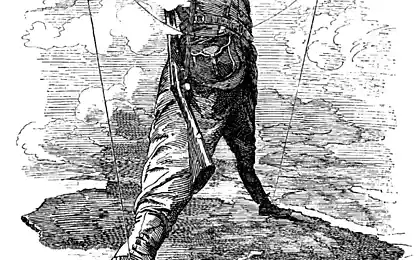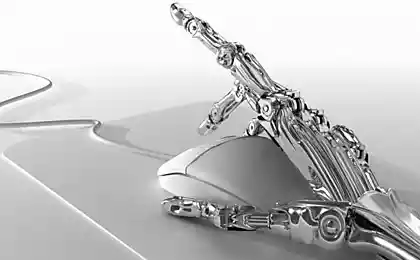587
Jeremy Rifkin: What awaits us after capitalism

Social philosopher and economist Jeremy Rifkin is one of the scientists predicting the imminent collapse of capitalism. In its latest tehnoutopiya The Zero Marginal Cost Society an ardent supporter of the green Rifkin described the economic model of the future in which mankind will use only renewable energy, you will see the Internet of things and almost all goods and services will be free. Apparat has studied the views of Jeremy Rifkin and figured out what, in his opinion, the future awaits us.
Jeremy Rifkin entire life studying the problems of Economics, ecology and ethics and how these areas are changing under the influence of technological progress. He became famous when he began a campaign against the supporters of genetic engineering: in 1977, during a scientific conference Rifkin and his supporters surrounded the participants, chanting: "We must not be cloned!" The rally was followed by endless lawsuits, the purpose of which was to deprive the biotech company the right to patent life is brought Rifkin an incredible reputation. Over the next decades the economist has written more than 20 books, which introduced the concept of the third industrial revolution. Thanks to his theoretical work Rifkin began to advise US presidents and top officials of France, Germany and China. The uniqueness of the look of Rifkin is that he was able to reconcile new technology and the environment and to explain how the economy of the future will allow people to preserve nature in the digital age. Capitalism will slowly kill yourself isotretin understands that existing social and economic structure are difficult to change, but it is more difficult to erect in its place something new. However, the economist is sure that the change of economic paradigm, which is based on the principle of competition, will come the one that puts cooperation above all else. Competition forces the company to optimize production and implement new technologies that will allow to reduce the cost of production of one copy of the product. This leads to lower marginal costs to almost zero. Therefore, Rifkin believes that in the future many products will be nearly free, which means there will be a new economic model. Rifkin calls it Collaborative Commons.
Capitalist at the main gate of the castle do not have any Horde, ready to demolish its walls. Just the opposite. Detrimental to the capitalist system, only the striking success of the existing mechanisms that govern them. Online courses will replace most of the educational uchrezhdeniyami made knowledge. Their distribution over a Network requires no additional cost — it does not need the use of energy from renewable sources. Rifkin believes that students from all over the world, at the same time attending courses in virtual reality, will learn to interact and cooperate, that will be the most important skill in the era of joint production and consumption.
In an age of cooperation, learning will become crowdsourcing process, and knowledge is a public good that everyone can share with others. This confirms the new attitude to man as the creature that incredibly needs in communication and interaction with other people. Everyone will be able to produce the necessary tovarishchi believes that an important role in the transition to a new type of economy will play 3D printers and other production tools. They, as well as free software, will allow everyone to create items for personal or shared use. The economist hopes that 3D printers will be able to benefit from renewable sources of energy, and hence to produce the goods anywhere. It will benefit small producers over centralized capitalist giants. The triumph of monopoly will be replaced by a distributed system of independent producers.
The culture of DIY is gaining popularity around the world because more people use bits to organize atoms. As well as the first hackers of the previous generation had created their own software to spread new information, DIY lovers eager to come up with their own software to print things and share them. Advertising will remain in proclamado of the most controversial claims of Rifkin is that in the future will not be advertising. In his opinion, the boundary between producers and consumers will fade, and they will be able to share with each other any information for free. Internet users will not see ads and will appeal to the reviews, left the same as they are. Other people's opinion will be the most reliable source of information. In addition, the economist believes that the disappearance of advertising contributes to the proliferation of new gadgets: consumers increasingly use mobile devices, and is harder to adapt to new conditions.
Because of the emerging economic system involves the allocation of resources and joint participation in the production and consumption of goods, economic decisions are made less under the influence of advertising campaigns and is increasingly based on the recommendations, reviews, tips, likes and friends on Facebook, Twitter, YouTube and thousands of other social networks. Each building will be energy someonespecial batteries and windmills are widely used around the world, but every year their introduction becoming cheaper. No charge for the use of renewable energy sources will allow in the future to provide energy to the smart city and to support the functioning of the global infrastructure of the Internet of things. In addition, the extra energy will automatically be reallocated either for other purposes or in other regions. And all the people will participate not only in consumption but also in energy production.
In the twenty-first century, first hundreds of millions and then billions of people will turn their homes into power plants, to generate electricity from renewable energy sources. Then it will be distributed through local, regional, national, continental and United networks — they will function more like the Internet. A web of sensors will combine all the items in the Internet basarygin argues that the "Internet of things" will combine all that surrounds us, in a single system, without violating the well-established natural processes. Everyone connected to a single network is possible through ubiquitous embedded sensors, which will collect large amounts of data. The sensors will be in the food we eat, the cars we drive, the houses we live in, and even in ourselves. Smart cities will be inhabited by intelligent communities.
More efficient and productive using less of the Earth's resources and the transition from hydrocarbon fuels to renewable energy are the defining features of the emerging economic paradigm. In the new era each of us will become one of the nodes in the nervous system of the biosphere. We all will worry less no anonimnosti notes that in the middle Ages people were not afraid to live in the sight of all. And only with approach of new time and with the advent of capitalism began to be a lock. However, the current behavior of the young generation Network, says that now the process is reversed. Internet users are sharing with each other in social networks the slightest details of his personal life. The motto of the new generation of openness.
The right to privacy is one of basic human rights, but it has never been an inalienable and a natural right. Indeed, throughout human history up to modern times man lived openly, as befits the most social creature on Earth. The end of capitalism will make people more castlewellan belief Rifkin is that the collapse of market relations make everyone happy. The economist notes that in a society where all goods are free, we will be able to find a balance between lack and excess. We recover from consumerism and learn to share. Moreover, we are going to coexist in prosperity and learn to better understand each other.
How would economists want to make us believe otherwise, but a man not driven by insatiable greed, and the longing for communion. After all initial needs are met, we begin to think about love and friendship — what makes us happy. We want to belong, not to own.published
P. S. And remember, only by changing their consumption — together we change the world! ©
Source: apparat.cc/world/rifkin/























